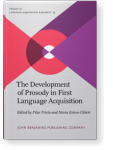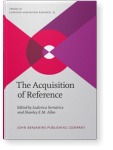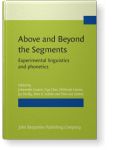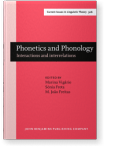Aoju Chen
List of John Benjamins publications for which Aoju Chen plays a role.
2018 Chapter 15. Get the focus right across languages: Acquisition of prosodic focus-marking in production The Development of Prosody in First Language Acquisition, Prieto, Pilar and Núria Esteve-Gibert (eds.), pp. 295–314 | Chapter
Languages differ in both the use of prosody in focus marking and prosodic systems. In the light of recent studies of acquisition of prosodic focus marking in typologically different languages, we argue that typological differences have direct influences on acquisition of prosodic focus marking.… read more
2015 Children’ use of intonation in reference and the role of input The Acquisition of Reference, Serratrice, Ludovica and Shanley E.M. Allen (eds.), pp. 83–104 | Article
Studies of children’s use of intonation in reference are few in number but are diverse in terms of theoretical frameworks and intonational parameters. In the current review, I present a re-analysis of the referents in each study, using a three-dimension approach (i.e., referential… read more
2014 Information status and L2 prosody: A study of reference maintenance in Chinese learners of Dutch Above and Beyond the Segments: Experimental linguistics and phonetics, Caspers, Johanneke, Yiya Chen, Willemijn Heeren, Jos Pacilly, Niels O. Schiller and Ellen van Zanten (eds.), pp. 120–130 | Article
When referring, speakers vary prosody according to the information status of
the referent. There is some work on L2 learners’ use of prosody in encoding
given and new information but not necessarily in the context of reference maintenance.
The current study investigates how Chinese learners of… read more
2009 The phonetics of sentence-initial topic and focus in adult and child Dutch Phonetics and Phonology: Interactions and interrelations, Vigário, Marina, Sónia Frota and M. João Freitas (eds.), pp. 91–106 | Article
This study investigates whether adults and children use phonetic means to distinguish sentence-initial topic and focus marked with the same accent type (H*L) in Dutch declaratives. It was found that in adults’ speech, the falling accent starts to fall earlier and has a larger F0 excursion and lower… read more



